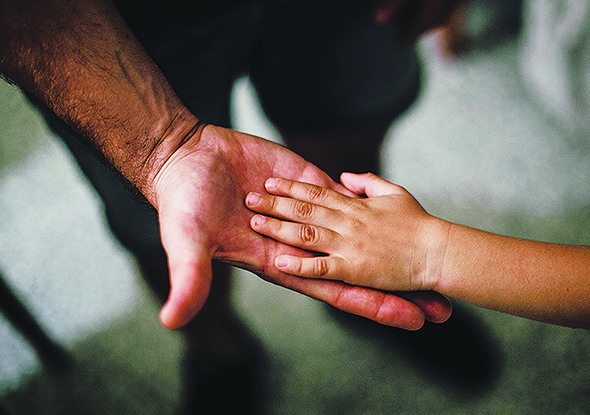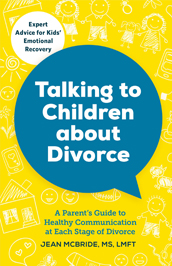Successful Co-Parenting After Divorce: A Practical Guide for Separated Families

- This blog contains affiliate links, which we may receive a commission for purchases. The decision is yours, whether or not you decide to buy.
Navigating life after divorce is never easy-especially when children are involved. For many families, the biggest challenge is building a healthy co-parenting arrangement that supports the well-being of the children.
DivorcedParents. is a trusted directory created to support families during one of life’s most challenging transitions. Navigating divorce is never easy, but access to the right resources can make a meaningful difference. This guide brings together thoughtful co-parenting tips, common challenges to be aware of, and guidance to help create a supportive, stable environment where children can thrive.
Why Co-Parenting After Divorce Matters Effective co-parenting after divorce is crucial for your child’s emotional and psychological health. Research shows that children thrive when parents cooperate and prioritize their needs-even after separation. They’re less likely to experience anxiety, depression, or behavioral challenges and more likely to build resilient, healthy relationships.
Top Co-Parenting Tips to Help Your Child Thrive
1. Communicate Respectfully
and Consistently
Clear, respectful communication is the cornerstone of a successful co-parenting relationship.
- Stay child-focused: Keep discussions centered around your child’s needs-not past conflicts.
- Choose appropriate platforms: Use co-parenting apps, email, or text messages if face-to-face conversations are difficult.
- Establish communication guidelines: Agree on times, methods, and boundaries to reduce conflict.
- Keep it professional: Think of your co-parenting dynamic as a business partnership focused on your child’s best interests.
2. Maintain Consistent Routines
Across Households
Children need predictability, especially during family changes. Aligning routines helps reduce stress and gives children a sense of security. Ways to maintain consistency: Use a shared online calendar to manage school events, medical appointments, and activities. Set similar rules for bedtime, screen time, and discipline. Coordinate parenting styles to avoid confusion and mixed messages.
3. Stay Flexible and Open to Change
While structure is key, flexibility is equally important. Life happens—schedules shift, plans evolve, and unexpected events arise. Best practices for adaptable co-parenting: Be willing to swap parenting days or accommodate last-minute changes. Avoid being rigid—prioritize your child's emotional needs over a strict schedule. Model cooperative problem-solving for your children by showing compromise and empathy.
4. Protect Children fromParental Conflict
Children should never feel caught in the middle. Avoid arguing in front of them or discussing legal or financial issues where they can hear. Healthy habits include:
- Never ask your child to act as a go-between or “spy” on the other parent.
- Reassure them consistently that the divorce is not their fault.
-
Keep the atmosphere positive and supportive, even if tensions exist behind the scenes.
5. Support Your Child’s Bond
with Both Parents
Your child deserves a strong, loving relationship with both parents. Encourage this connection—even if it’s emotionally difficult.
Supportive strategies:
- Avoid bad-mouthing your ex in front of your child.
- Encourage communication (calls, video chats, messages) when your child is away from one parent.
- Be enthusiastic about their time with the other parent-this affirms that they don’t need to choose sides.
When to Seek Help:
Professional Co-Parenting Support
Sometimes, creating a successful co-parenting plan requires outside support. If you're facing ongoing conflict or communication breakdowns, consider speaking with a family therapist, mediator, or co-parenting coach. Visit www.divorcedparents.co.uk and get the mediation services to resolve parenting disagreements Emotional support through counseling Legal guidance for formalizing parenting agreements
Author’s Bio Mark Berry is highly innovative business and marketing professional with years of writing experience in Marketing, Nutrition, Healthcare, Filing Bankruptcy, E-Commerce (Fashion, Lifestyle, Beauty, Food), Classifieds, Real Estate, Tech, QSR, and Confectionery industries. The capacity to perform market research allows me to learn about the target audience, their requirements and preferences, and the competitive landscape.
PHOTO: TANYA GORELOVA
You may also like
Books
Buy now from Amazon
Podcast
Kate Daly is co-founder of amicable and host of the The Divorce Podcast. Kate created The Divorce Podcast to discuss and demystify divorce, separation and co-parenting in the UK. In each episode, Kate is joined by experts in their field to explore divorce and separation from every angle.
Articles
Parenting professionals
Related Posts
-

Co-Parenting Across Distances in the UK: Practical Solutions for Separated Families
-

How to Create a Parenting Plan in the UK: Questions Parents Ask
-

Managing Children’s Screen Time in Shared Custody: A Practical Guide for UK Parents
-

Creating a Child-Centered Holiday Plan After Divorce: Minimising Stress and Maximising Joy
-

How to Support Your Children Through Divorce: 4 Practical Steps for Parents



.jpg)


